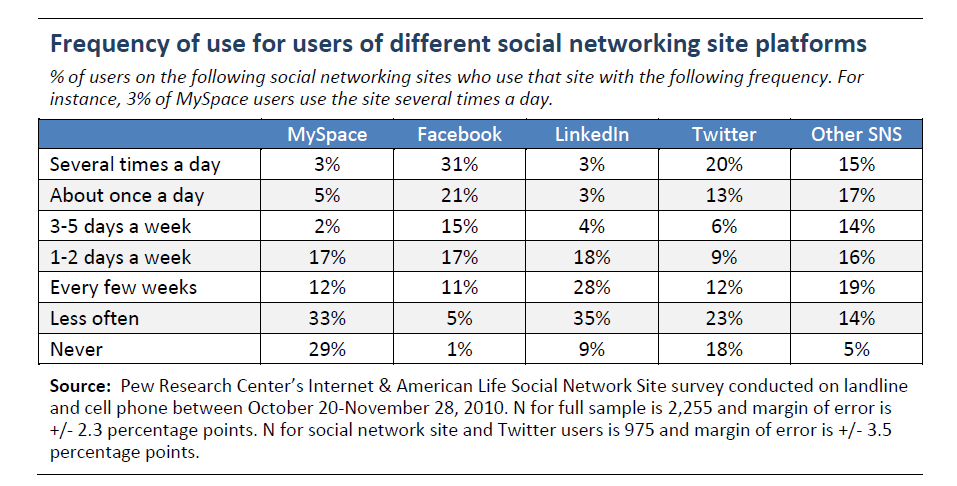The Pew Research Center’s Internet & American Life Project recently released Social Networking Sites and our Lives, which is a report based on the findings of a survey on Americans’ use of the internet conducted from October 20 to November 28, 2010 with a sample of 2,255 adults, age 18 and older who were contacted via both landline and cellular phones. The research supports the commonly held view that Facebook is currently the dominant social networking option with some 750 million users:
Facebook dominates the SNS space in this survey: 92% of SNS users are on Facebook; 29% use MySpace, 18% used LinkedIn and 13% use Twitter.
There is considerable variance in the way people use various social networking sites: 52% of Facebook users and 33% of Twitter users engage with the platform daily, while only 7% of MySpace and 6% of LinkedIn users do the same (p.3).
The research also found that more than half of all users visit the Facebook at least once a day (far more often than users visit other social networking sites)
and as a group, Facebook users:
- are more trusting than others
- have more close relationships
- get more social support than other people
- are much more politically engaged than most people
- revive “dormant” relationships (p.4-5)
So What?
Research conducted by Arbitron and Edison Research suggests that the majority of Americans aged 12 and older now use Facebook. As Facebook impacts increasing numbers of people, additional attention must be given to determine how it impacts the lives of its users.
- What is your initial response to Social Networking Sites and our Lives’ five findings about Facebook users (listed as bullet points above)?
- How have you utilized Facebook to increase connectivity? What other positive outcomes have resulted from your participation on Facebook? What concerns do you have about the rapid growth of Facebook?
- Most congregations would find the attributes of Facebook users to be desirable of their members and active participants (more trusting, more close friendships, get more social support, more politically engaged, and more apt to revive dormant friendships). How is your congregation leveraging Facebook to help members achieve these outcomes?
